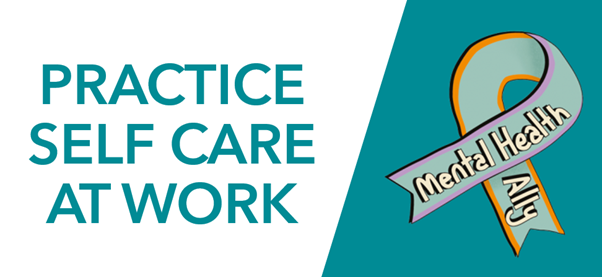
If you look around your workplace today, 20 per cent of your workforce could be experiencing poor mental health. This can be exaggerated when a colleague has a particularly difficult interaction at work or a stressful day.
Beyond Blue’s Heads Up initiative found that having a mentally healthy workplace was the second most important factor in an employee’s decision to accept a role.
We spend many waking hours at work, more than a third of our life for many people. So, it is important to create and promote a mentally healthy workplace, and this is a collective responsibility.
We all have a role to play
We all have a role to play when it comes to supporting mental health in the workplace. Often, a colleague is the key person in noticing stress in someone else.
“Where stress is ongoing and your colleague is exposed to recurring stressful incidents, they sometimes don’t notice it themselves,” said atWork Australia’s principal wellness advisor, Galit Bailey.
Depending on how well we know our colleagues, here are a few key stress indicators to look out for:
- Irritable or anxious
- Absenteeism or increased sick leave
- Removing oneself or retreating inwards
- Changes in productivity levels
- Overwhelmed and fluctuating emotions
- Loss of sense of humour
- Avoiding contact or over contact
- Enduring rather than enjoying work
What can we do when we notice stress?
It starts at the top with the culture of the business. It includes; embracing diversity and mental health literacy, demonstrating compassion, allocating resources to attend to stressful incidents, such as an Employee Assistance Program (EAP), and offering opportunity to discuss stress and other mental health concerns in confidence.
What is a mentally healthy workplace?
Employment can help support your mental health, as there are many health benefits to good work. A mentally healthy workplace is one that outlines mentally healthy provisions and supports mental health in organisational policies. It will also have values that support mental health, such as diversity and compassion.
There will be a commitment to mental health and wellbeing, such as an EAP, ongoing support, Mental Health First Aid training for staff, recharge days or mental health days as part of personal leave options.
There will be some form of preventative action, like promotion of mental health days, such as R U Okay Day, informal meetings, promotion of exercise and encouraging discussion about mental health.
The Queensland Government’s Flexible by Design is a good example of a principle-based framework for flexible working, designed to increase productivity while promoting employee wellbeing.
Debriefing with colleagues
Debriefing is a structured voluntary discussion aimed at releasing stress and creating problem solving. Debriefing can be formal (Critical Incident Response via EAP), operational (focus on technical problem-solving such as increased security), or informal (with colleagues and friends).
Goals of debriefing
Debriefing should be:
- Private, confidential, and voluntary
- Opportunity to give a voice to the person impacted
- Normalise and validate work-related stress response
- Share experiences with each other
- Aim to resolve stressful incident or stress, and prevent future problems, such as Post Traumatic Stress Disorder and burnout
- Normalised and encouraged by the organisation
- Formal debrief option is offered, such as EAP or another opportunity to speak to a counsellor

Practicing self-care at work
Self Care Start with you
- Know yourself. What are your stresses and your coping strategies?
- Schedule time for self-care. Don’t overschedule your diary with activities though as this can then become overwhelming.
- Practice grounding techniques, undertake breathing exercises
- Engage in physical activity and a mentally-healthy diet
- Be authentic. Do not be afraid to talk about your limits
- Take regular breaks
Employers supporting mental health care
- Advocate mental health and wellbeing, such as having a Diversity and Inclusion Policy which includes reference to mental health
- Incorporate Mental Health Awareness or Mental Health First Aid training in the employee induction
- Provided free/subsidised mental health support
- Offer incentives/subsidy for physical activities and healthy eating
- Lead by example: role model your own experiences and self-care behaviours
- Introduce mentally healthy workplace activities, such as exercise programs and mindfulness sessions
atWork Australia supports many people. We support people living with depression, anxiety and other mental health conditions into meaningful work. We support them through our Wellness Services and provide access to Allied Health. To learn more, visit our website here or call us on 1300 080 856.


